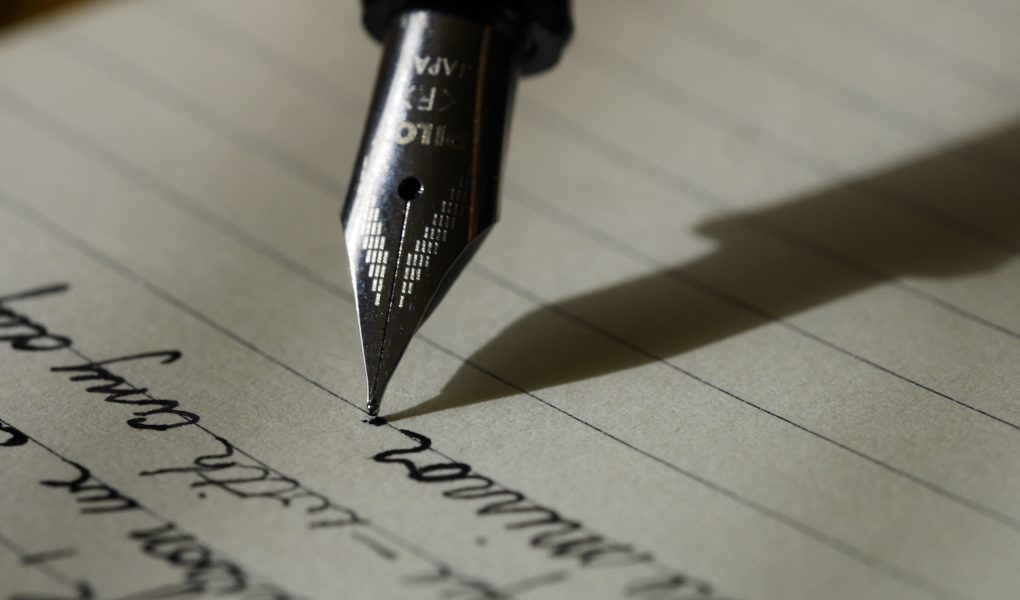We’ve all done it. Self-editing. From my own experience, there’s also a blindness to self-editing because as a creator I am too close to my body of work. I see it every day. It’s like tasting your own cooking. Because you like the taste and you taste it every day doesn’t mean it’s good or at a professional level. We all can do with improvement and feedback. In Part 2 of my #thewritinglife Q&A with Cambridge-qualified Mary-Anne Farah (Maz) and Holly of Marginalia Manuscripts, they offer some golden tip-offs and pitfalls when writers edit themselves.
Give us writers 3 pitfalls to avoid.
Holly & Maz: Whittling this answer down to only three pitfalls will be a self-editing feat in itself, but we’ll do our best!
1. Don’t expect self-editing to be a short or simple process
Many aspiring writers we speak to are under the mistaken impression that the self-editing process will be a walk in the park compared to the actual writing of their manuscript, particularly in terms of timing. In reality, the editing process can take just as long, if not longer, than the writing itself.
This misconception can leave writers feeling disheartened upon finding that the editing process is a lot more gruelling and time-consuming than they first anticipated. We encourage writers to anticipate a lengthy editing process (several months, at least) so that they don’t become demotivated by the reality of the task.
Another aspect of editing that many first-time writers seem unaware of is the fact that their post-edit draft will look very, very different to their pre-edit draft. When self-editing is done right, it is done liberally and ruthlessly. When we talk about “editing” we’re not simply referring to sentence tweaks, but to large-scale alterations such as changing your character cast, plenty of re-writing, and even removing scenes and chapters altogether.
2. Don’t do it alone
Whether you decide to get your novel manuscript critiqued or to have your friend read it, make sure you get someone to read through your manuscript. The benefit of having another pair of eyes on your work is truly immeasurable.
Possibly the best advice we can give any author during the self-editing process is don’t do it alone.
Writing a novel is a unique and peculiar activity that requires authors to lose themselves in another world for hours at a time each day, often for years. A pitfall of this experience is that when writers come up for air and begin to edit, they lack the necessary distance to see their work clearly and objectively. A friend, family member, beta reader, or novel critique can provide you with varying levels of insight and constructive criticism. This criticism should be the bedrock of your self-editing.
3. Don’t delete anything
Some days, writers hate their writing. Maybe it’s a full moon, but for some unknown reason writers are occasionally overwhelmed by a complete contempt for their own writing. On days when you feel like this, it’s easy to go on a cutting spree, hacking out chapters at a time.
You might well find some hidden gems in there once the full moon passes.
While murdering your darlings is an essential part of editing, deleting chunks of work when you’re feeling insecure shouldn’t be. If you feel the need to get rid of something, copy and paste it into a different document.
Give us writers 3 tips on self-editing.
Holly & Maz:
1. Do separate your editing into different tiers
As we’ve already touched on, self-editing isn’t just about fixing sentence-level issues. It also involves:
fact-checking, reviewing consistency, flagging plot holes, addressing pacing issues, and removing any filler.
Trying to address all of these components at once can lead writers to overlook things and make mistakes. Instead, we advise writers to separate their self-editing into different tiers, one for each aspect of their editing. Commit to reading and editing your manuscript from start to finish with one particular aspect in mind (i.e., identifying plot holes), and do this for each aspect you’d like to address.
2. Do give yourself some space
When you finally finish your manuscript, don’t throw yourself into editing straight away. Take some time away from your novel to clear your head and even read something else. By giving yourself space, you regain your objectivity, which allows you to adopt a reader’s perspective when you do resume editing.
3. Do read something else
If you’re struggling to really distance yourself from your book, and find that it continues to consume your thoughts even when you’re spending time away from it, try reading something else (ideally in a different genre). Reading something new and completely different functions like a cleanse or detox, leaving you better able to edit with fresh eyes when you return to your manuscript.
Tell us how to get in touch with you.
Maz and Holly: The best way to get in touch with us is to either visit our website Marginalia Manuscripts and fill in the contact form, or email us directly at hello@marginalia-manuscripts.co.uk. We also have a facebook page and instagram account where we post writing tips. We love connecting with writers and hearing about their work in progress, even if it’s just to have a friendly chat, so please do get in touch!
Thank you so much Maz and Holly.
I hope you’ve enjoyed this enlightening Q&A. If you feel like you are done-done and ready-ready, do not hesitate to contact editors like Mary-Anne Farah (Maz) and Holly of Marginalia Manuscripts. They will be your additional four eyes, for what is the most exciting and eye-opening stage of the writing process to take your manuscript from “okay”, or “good”, to the best that it can be. In the way a cover can make or break a book’s outside, the editing is what will make or break the inside. Each editor I have had was also a mentor and teacher to me. From each I have learned what you cannot learn in any course, because it is specific to your writing and your book. They are teaching you what you can’t teach yourself. Imagine playing guitar wrong for many years without anyone telling you specific shortcuts and techniques to master guitar-playing. And lastly, dare I say this, though it’s not guaranteed, a good editor will surprise you in an unexpected way. At least one door in your manuscript will open and you will not know where it will take your writing for that manuscript and for all future unborn work.
Do you have an editor, teacher, mentor or critique reader that you trust? Have you ever been surprised by the act of both self-editing and/or editing? Did you crack a code? I would love to hear from you. Please share if you enjoyed this post.
Ivy Ngeow was born and raised in Johor Bahru, Malaysia. She is the author of three novels, Overboard (Leopard Print, 2020), Cry of the Flying Rhino (Proverse Hong Kong, 2017), winner of 2016 International Proverse Prize, Heart of Glass (Unbound UK, 2018) and numerous short stories. She also writes mini lifestyle books on cooking, beauty, health and fitness. She lives in London.
was born and raised in Johor Bahru, Malaysia. She is the author of three novels, Overboard (Leopard Print, 2020), Cry of the Flying Rhino (Proverse Hong Kong, 2017), winner of 2016 International Proverse Prize, Heart of Glass (Unbound UK, 2018) and numerous short stories. She also writes mini lifestyle books on cooking, beauty, health and fitness. She lives in London.
#overboard #ivyngeow Tweet me: @ivyngeow

